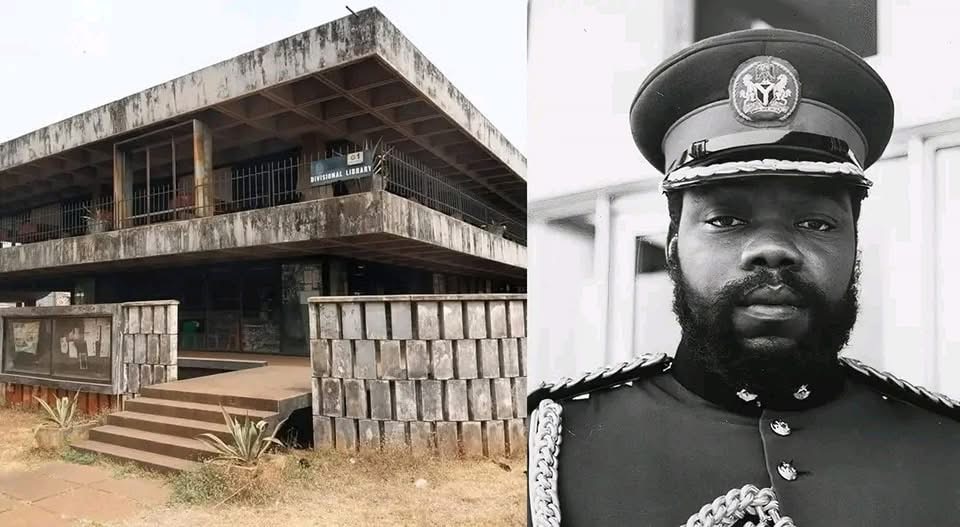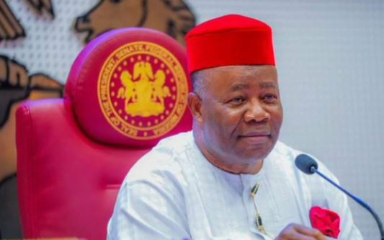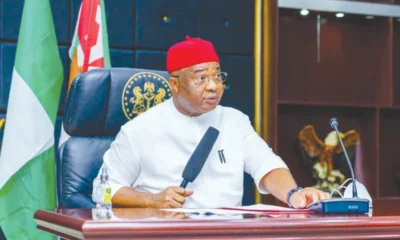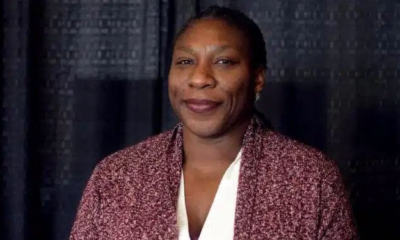News
Onitsha District Library was one of the legacies of Dim Chukwuemeka Odumegwu Ojukwu as Governor of the Eastern Region.

The edifice, opened in 1965, was classically built, reflecting the vision of the young Dim, who had left Oxford University just ten years earlier, in 1955. Some say it was the architectural masterpiece of Dr. Alex Ekwueme. But whoever shaped it, even in its current abandoned state, it remains one of the most striking architectural works in all of Onitsha.
We met this building twenty years later. And because Onitsha didn’t have many safe, creative spaces for children, the library became our sanctuary. Many people now in their late 30s to 50s found a second home within its walls. It had countless comic books, stories like Tom Sawyer, The Frankenstein Monster, Dr. Jekyll and Mr. Hyde, and many others that sparked our imaginations and stretched our young minds.
Back in our primary school days, access was free. But by the late 90s, it cost about ₦100 a month. Even then, I’ve never seen a library as alive as Onitsha District Library. It was where we read not just literature, we also prepared for JAMB, GCE, and every major exam.
That’s why, in 2019, when I had the opportunity to share my life story, I gave full credit to the Onitsha District Library. It played one of the most defining roles in making me who I am today.
Today, that library is a ghost of its former self. For over a year, social media – especially Twitter – has hosted campaigns urging authorities to act. But so far, nothing has been done to restore this cradle of learning and community.
I understand the emotions the topic stirs. Those of us who were raised in Onitsha know what that place meant. It raised us. It nurtured us. And now, many are willing to give back.
But as we do so, let’s also seek a way to bring stakeholders to the table and have an honest conversation. We know how powerful our voices can be and we have the choice to either use it loudly or calmly.
Still, one of the books I read in that library told the story of a contest between the Sun and the Wind. And the moral of that story? That gentleness can achieve far more than force or aggression.
Let’s go for results…
News
Man in shock after lady he lodged with in a hotel in Abuja flees with his car and other valuables

A Nigerian man is currently in shock after a young lady identified as Precious Chinyere , whom he took to a hotel in the Asokoro area in the FCT for a romantic getaway allegedly fled with his car and other personal belongings on Thursday, February 5,
The distraught man and Precious had visited the hotel and opted for a short time stay. Things took a different in the evening when the man noticed Precious had left the hotel room without notifying him and took along with her some of his personal belongings including phones and laptop and also his car.
The victim immediately reported the incident to the police.
When contacted, the spokesperson of the FCT police command, SP Josephine Adeh, told LIB that the matter is currently being investigated and that efforts are being made to apprehend the suspect.
News
US Reacts As De@th Toll In Kwara Terror Attacks Hits 200

The United States Mission in Nigeria has condemned the k!lling of more than 200 civilians in recent attacks on communities in Kwara State.
Recall that terrorists launched de@dly attacks on Woro and Nuku communities in Kaiama Local Government Area of the state on Tuesday night, k!lling unsuspecting citizens.
It was gathered that the gunmen invaded the villages, opened fire on residents and burned homes.
According to reports, the de@th toll from the unfortunate incident hit 200 on Thursday night.
Reacting, the US Mission Nigeria condemned the k!lling via a post on its official X handle.
The post reads, “The United States condemns the horrific attack in Kwara state in Nigeria, which claimed the lives of more than 160 people, with the de@th toll still unconfirmed and many still unaccounted for.
“We express our deepest condolences to the families of those affected by this senseless violence.
“We welcome President Tinubu’s order to deploy security forces to protect villages in the area and his directive to federal and state officials to provide aid to the community and bring the perpetrators of this atrocity to justice.”
News
“I’ll never settle for a barber, yahoo boy or a poor man” — nail tech’s list of men she says she can’t marry sparks reactions online

A Nigerian nail technician has set social media talking after openly listing the kind of men she says she can never settle for.
In a now-viral post, she stated clearly that she refuses to “settle for less” and went on to mention professions and traits she considers a no-go area.
According to her, she can never settle for a barber, an aza man, a yahoo boy, a mechanic, an actor, a laundry man, a hype man, or a plumber. She also added that she wouldn’t marry a man with a high body count or a poor man.

-
Business1 year ago
US court acquits Air Peace boss, slams Mayfield $4000 fine
-

 Trending1 year ago
Trending1 year agoNYA demands release of ‘abducted’ Imo chairman, preaches good governance
-

 Politics1 year ago
Politics1 year agoMexico’s new president causes concern just weeks before the US elections
-

 Politics1 year ago
Politics1 year agoPutin invites 20 world leaders
-

 Politics1 year ago
Politics1 year agoRussia bans imports of agro-products from Kazakhstan after refusal to join BRICS
-
Entertainment1 year ago
Bobrisky falls ill in police custody, rushed to hospital
-
Entertainment1 year ago
Bobrisky transferred from Immigration to FCID, spends night behind bars
-
Education1 year ago
GOVERNOR FUBARA APPOINTS COUNCIL MEMBERS FOR KEN SARO-WIWA POLYTECHNIC BORI













